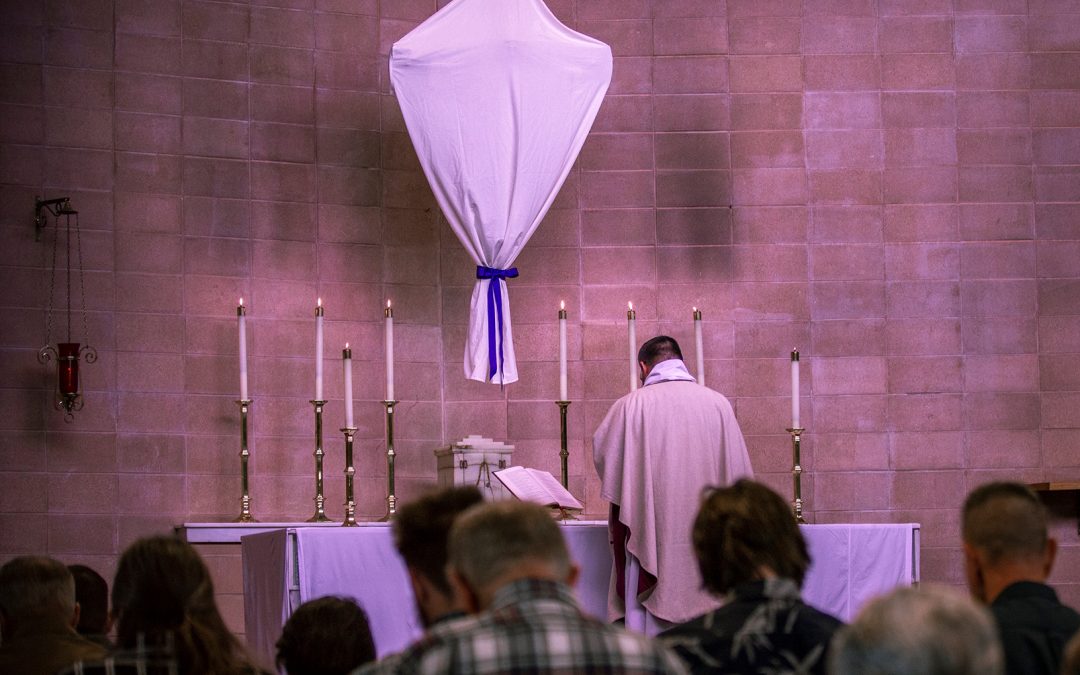Why do we give alms? Why do we pray? Why do we fast?
The purpose of these disciplines is easily lost us. We do not do them to earn our salvation. We are saved by faith through grace, not by works, lest any one should boast. Nor do we do them for fear of some divine punishment. The spiritual disciplines are not threats, that we must do, or else!
Why then do we practice these disciplines?
In the mystery of the Incarnation, Our Lord Jesus Christ himself practices them. Christ our God practices what he preaches. He gives alms, he prays, and he fasts. These three disciplines are linked; they are intertwined like an unbreakable chord. Their strength and power is realized only insofar as they are practiced in concert with one another.
The disciplines strengthen us against the assaults of the enemy. They extinguish the sinful passions that burn within us. They empower us in our struggle against the temptations of the world, the flesh, and the devil. St. Theophan the Recluse (19th century Russian saint) writes, “Although there are a slew of demons and all the air is packed with them, they cannot do anything to one who is protected by prayer and fasting.
Fasting is universal temperance, prayer is universal communication with God; the former defends from the outside, whereas the latter from within directs a fiery weapon against the enemies. The demons can sense a faster and man of prayer from a distance, and they run far away from him so as to avoid a painful blow.”
He goes on, “The passions are rooted in the flesh. When the flesh is weakened through fasting, then it is as if the fortress of the passions has been undermined, and its strength crumbles. On the other hand, to overcome the passions without fasting would be as remarkable as standing in a fire without being burnt. How is it possible for one who continually indulges his flesh with food, sleep and rest to maintain any sort of attention and purpose in spiritual matters? For such a one to turn from the earth, directing his attention to invisible things and striving for them, is just as difficult as it is for an enfeebled bird to rise up from the earth.”
Fasting, actually abstaining from certain food and drink, has become a lost discipline in the Christian West. This is certainly to our own spiritual peril. The church fathers teach that the whole of the spiritual life begins with the stomach. The 7th century monk St. John Climacus says that “the prince of demons is the fallen Lucifer, and gluttony is the prince of the passions … the stomach is the cause of all human disaster”
St. Basil the Great, the 4th century Cappadocian Father writes, “For just as water that irrigates many furrows makes those furrows fertile, so also the vice of gluttony, proceeding from [our] heart, irrigates all of [our] senses, raising a whole jungle of evils within [us], making [our] soul a lair of wild beasts.”
The 11th century Byzantine monk St. Simeon the New Theologian writes, “It is impossible to fill the body to satiety with food and at the same time have spiritual enjoyment of mental and Divine blessings. For inasmuch as a man panders to his belly, in the same measure he deprives himself of spiritual blessings; conversely, in proportion as he keeps his body lean, he will be filled with spiritual food and consolation.”
Why is the discipline of fasting so important? To understand its importance, we must be clear that fasting is not an ends in and of itself, but rather it is a means to an ends.
Fr. Thomas Hopko says that fasting is a “means by which we open ourselves to the grace of God. It is an expression of our faith in God …” At certain times of the year, “We don’t eat certain things … we change our diet … to kill self-will. Abandonment of self-will is one of the main disciplines for doing the will of God, because the clash is: either God’s will or my will. One of the places that we are the most willful is in our eating and drinking, so it is a very great training. It is an ascesis just to train ourselves to be in control of our eating and drinking.
Bishop Kalistos Ware writes, “The primary aim of fasting is to make us conscious of our dependence upon God […] The purpose of this is to lead us in turn to a sense of inward brokenness and contrition; to bring us, that is, to the point where we appreciate the full force of Christ’s statement, ‘Without Me you can do nothing’ (John 15.5). If we always take our fill of food and drink, we easily grow overconfident in our own abilities, acquiring a false sense of autonomy and self-sufficiency.”
The purpose of the spiritual disciplines of alms-giving, prayer, and fasting is not to strengthen the self-will, but rather to abandon it.

